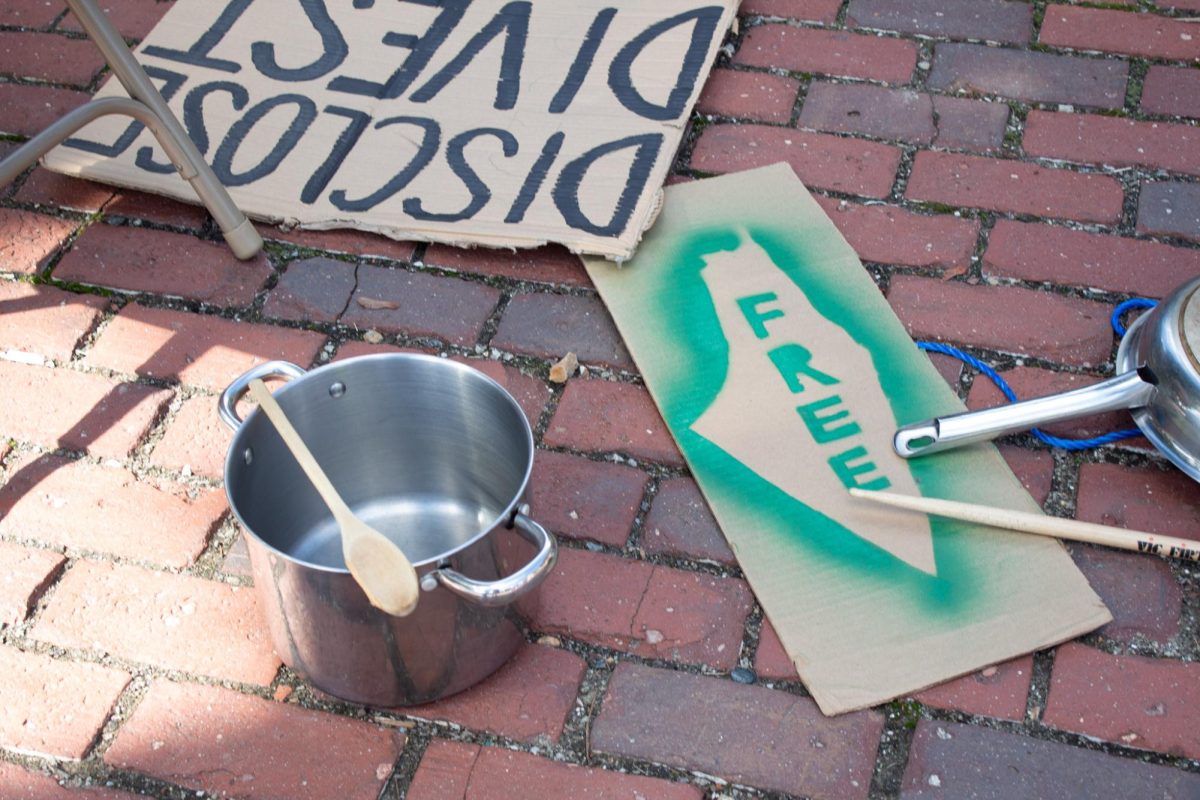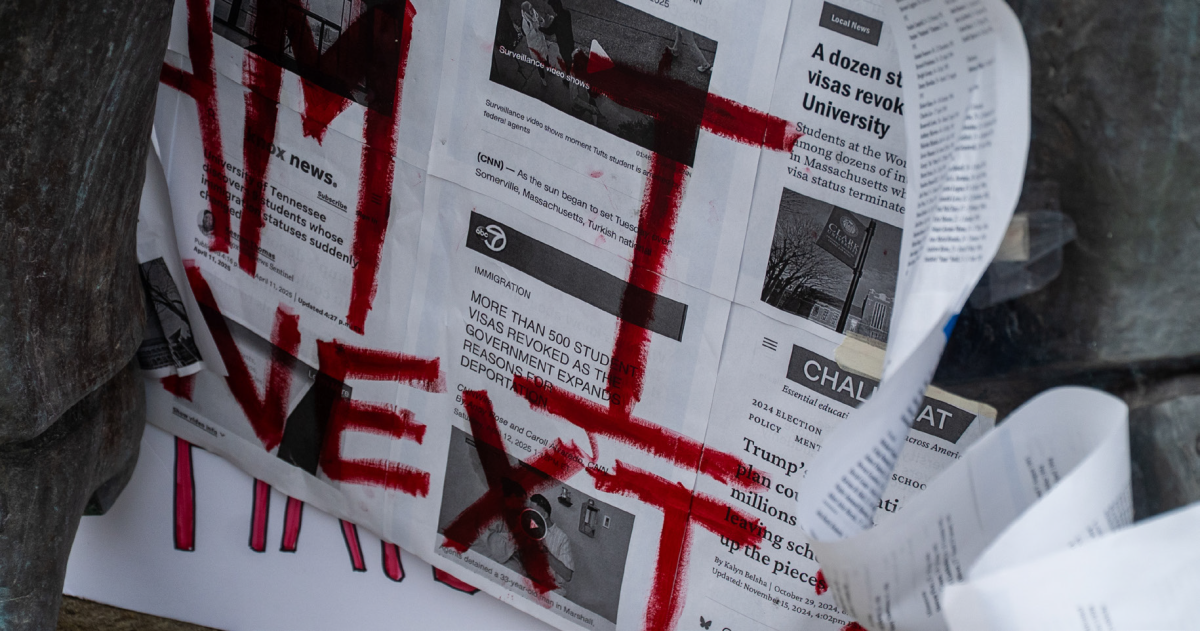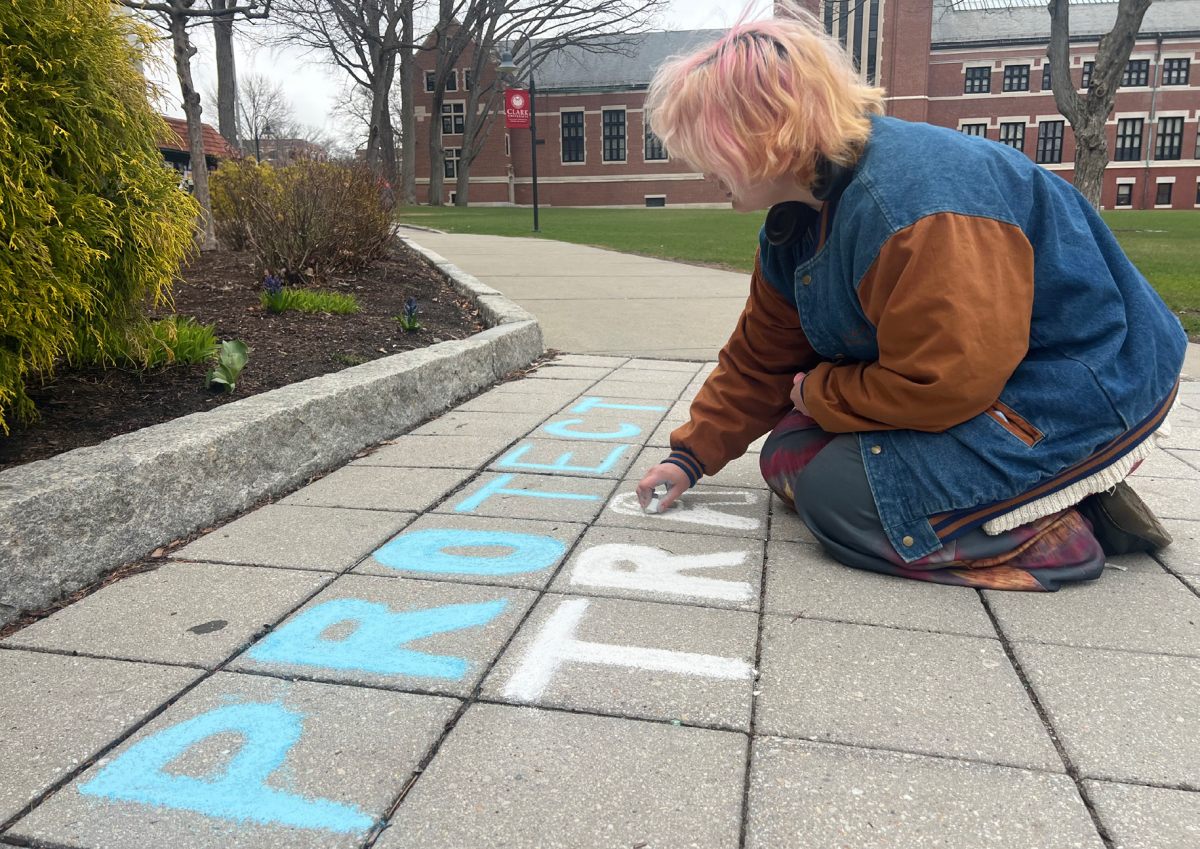On November 11, Clark’s Undergraduate Student Council (CUSC) emailed undergraduates to provide an update on actions taken following a referendum vote last March. 772 students participated in the referendum, which addressed divesting endowment funds, adhering to the Boycott, Divestment, Sanctions (BDS) movement and stopping purchasing from Amazon. This constitutes 33 percent of the student population.
What is BDS…Or, the Short Version
According to the BDS website, BDS describes themselves as a Palestinian-led movement using similar tactics as the anti-Apartheid movement in South Africa to “pressure Israel to comply with international law.” The organization encourages followers to comply with three tenets: boycotting institutions and groups with monetary ties to the State of Israel, encouraging companies to divest from Israel and Israeli companies, and to pressure governments to impose sanctions on Israel. BDS has seen a surge in engagement and followers in the face of the Israeli-Palestinian conflict.
However, a TIME Magazine article from February of this year notes that many feel that the movement’s focus on Israel is “unfair.” In fact, the Anti-Defamation League calls BDS one of the world’s most controversial boycott movements. The primary concern is that this focus on pressuring Israel specifically is anti-Semitic, or could lead to increased antisemitism. According to TIME, 33 U.S. states have implemented laws that punish support for BDS as a result.
Student Council Progress
In the November 11 email, CUSC broke down their progress on implementing each of the four provisions on Clark’s campus. This follows a CUSC meeting held on November 7 in which a public comment was made claiming that the referendum passed last semester was not “properly addressed,” as well as an October 10 “Strike for Palestine” protest at the campus gates.
CUSC was busy over the summer trying to chart a path toward divestment. They met with Clark University President David Fithian and Dean Kamala Kiem to begin conversations. Student Council also researched alternative vendor lists to help clubs find options to achieve compliance with BDS demands. CUSC requested to meet with the Board of Trustees (BOT), but did not receive a response either from BOT or from Fithian, who sent a follow-up message on their behalf.
CUSC Treasurer Kelechi Akabuogu created a vendor list to help clubs use alternatives to Amazon for purchases. CUSC has also collaborated with Student Leadership and Programming (SLP) to ensure that purchases through any vendor is made under the University’s tax exempt status so that federal and state taxes will not be applied inappropriately. Venders such as Walmart, Target and Party City were suggested, all of whom are not on the boycott list created by BDS. CUSC has also been encouraging registered student organizations (RSOs) to use this list, and regularly check the BDS Movement’s website to ensure compliance.
However, according to Executive Board (E-Board) members, CUSC has faced some obstacles in their goal of implementing BDS from Clark University’s current dining vendor, Harvest Table. Harvest Table asserts that they do not “take a political stance,” according to company policy.
Equity and Inclusion Response
On November 12, The Scarlet received an email from CUSC Equity and Inclusion Representatives Molly Joe, Jordan Alexandre, Melissa Bento, and Stephen Gibbons explaining that CUSC “has not forgotten about the referendum” and that they are “trying to make progress.”
“We as Representatives have limited power so long as those above us are unwilling to allow change,” they wrote. “We, like you, are only students, navigating an opaque and bureaucratic system that is designed to protect certain interests. Our goals will only be achieved if enough of us are unwavering and persistent.”
CUSC Response
The Scarlet reached out to the CUSC E-Board and received an emailed response on November 17. CUSC writes that student support of the referendum has been “overwhelming.” Student leaders and the representative council both voiced support for upholding student opinion consistent with the referendum throughout Halloweekend. This included providing options for RSOs to avoid Amazon for all Halloweekend purchases and helping them find alternative vendors to Amazon.
“We encourage all undergraduate students to go to their representative’s office hours and to voice their thoughts about divestment,” they said. “We can try to perceive as much as we want, but we would rather act on actual thoughts from the student body.”
CUSC writes that their largest obstacle to implementing the referendum has been the student body itself, due to “low voter turnout” and “low engagement numbers” on last semester’s referendum vote.
“As we all know this is an issue far outside of Clark University and CUSC elections as well, but this continues to impact our ability to act on behalf of the entire student body,” they wrote.
CUSC offered office hours as an opportunity to boost engagement with the student body. Each of the thirty-two CUSC representatives hosts weekly office hours, which are open for discussion on any questions or concerns for the council.
“We would love to get some feedback from all of you,” CUSC wrote. “This would better inform how representatives vote in meetings. Our mission as CUSC is to serve all of you and we would welcome input.”
Editor’s note – the following corrections were made to this article at 11:40 a.m. on December 6: the article originally does not cite the specific TIME Magazine article it is referencing. This has been corrected. It also suggested that summer meetings between Student Council reps and President Fithian and Dean Kiem were for the specific purpose of discussing how to move toward divestment. This is not the case. According to an administration spokesperson, the University did not indicate in those conversations any specific intentions or action that would be taken. The wording was adjusted to reflect this.
Additionally, wording has been changed to make clear that the University’s tax-exempt status is applied when a club makes a purchase, rather than the vendors themselves being tax-exempt. The article also erroneously reported that “as of November 15, no purchases have been made through Amazon using CUSC’s club budget.” As of November 15, 36 clubs have made 68 purchases through Amazon totaling $9,430.97 using CUSC’s club budget. Lastly, it was also reported that Harvest Table replaced items from companies flagged by BDS and purchases from local vendors to better comply with BDS. This is not true. Harvest table purchases from local vendors as a company approach to dining services.
The Scarlet regrets these errors.





Neil Leifer ~ Dec 6, 2024 at 9:44 am
In Arabic there is a word: “hudna”, that means a truce; it can offer a space for people who hold conflicting opinions to sit, to share the experiences upon which those opinions are based and to truly listen to and imagine the experiences of those who have reached other conclusions. I propose a hudna on this subject and I offer to sit and serve coffee (or your nonalcoholic drink of choice), to listen, to try to imagine, to hear your experiences, and to share my experiences on the conflict. Please contact me if you’re interested and we will organize a coffee at a convenient location. Neil Leifer (alumnus)
Berel Dov Lerner ~ Nov 24, 2024 at 12:50 pm
Here’s the problem: Israel pulled out of Gaza, giving the Palestinians an opportunity of complete self-rule. The area was quickly taken over by the fanatical Islamist Hamas regime, which is devoted in word and deed to killing Jews and destroying Israel. The events of October 7 made perfectly clear the inadequacy of Israel’s policy of allowing Hamas to remain in power in Gaza while trying to limit its military capabilities via a partial blockade (in partnership with Egypt) and occasional armed clashes while also offering positive incentives for moderation, such as allowing increasing numbers of Gazans to gain employment in Israel. Hamas has used its time in power to build a huge underground military infrastructure beneath the towns and neighborhoods of the Gaza strip, basically turning the entire Gazan civilian population into one massive human shield for their fighters. The existential threat posed by Hamas (whose leaders have promised to repeat the savagery of October seventh many times over in the future) meant that Israeli forces would have to meet a military challenge perhaps unmatched in the history of war: vanquishing a genocidal militia that hides beneath a dense civilian population in a system of tunnels and bunkers perhaps more extensive than any other in the annals of warfare. It would be completely impossible to capture that infrastructure without the extensive use of arial bombing. To make matters worse, Hamas has no compunctions about using hospitals, schools, mosques etc. for its military purposes, Hamas has interfered with civilian populations trying to flee for safety, having been forewarned by Israel of impending attacks, and, while neighboring Arab countries have opened their borders to civilians fleeing the fighting in Syria, etc., Egypt has firmly refused to offer Gazans refuge for the duration of the war. Add to this that according to the UN, the usual ratio of combatant to civilian casualties in recent wars is about 1 to 9 (google “Ninety Per Cent of War-Time Casualties Are Civilians, Speakers Stress, Pressing Security Council to Fulfil Responsibility, Protect Innocent People in Conflicts”), and you will discover that Israel, fighting against an existential foe under these unprecedented circumstances, has done a very credible job of avoiding civilian casualties (Google “Israel Has Created a New Standard for Urban Warfare. Why Will No One Admit It?”). Sadly, given Gaza’s highly unusual demographics (50% of the population below age 18), many of the civilian casualties are bound to be children.
One vital requirement for peace: Arab Muslims must understand that when a large area of the earth’s surface is populated and controlled by people who share your language, culture, and religion, it really doesn’t make sense to kill and die for the exquisite “right” to resettle in and control the precise geographical location your great-grandparents fled from in a war (started by the Arabs who rejected the UN partition plan and instead sent in their armies, hoping to annihilate the Jews) in the 1940s.